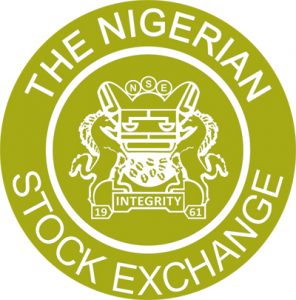It is the last trading day of Nigeria’s equities’ market for the year 2016 and it would not be out of place to say that the health indicators of the Nigerian Stock Exchange, namely: its All-Share index and Market Capitalisation closed in red, the third consecutive year.
It would not also be wrong to say many discerning investors and traders navigated the seemingly turbulent waters with lush green portfolios that would make their contemporaries envious.
However, if you are one of those who just managed to stay afloat in 2016, or were not so luck and got your fingers burnt, it is not a time to abandon the market, but an indication that the portfolio and trading strategy is in need of a rejig, just as it reveals the need for knowledge-based trading in a market that has gone nuclear.
As such, investors and traders looking for the biggest investment opportunities in the nation’s current economic situation should look away from the sectors that are import dependent because time can be a gift and a curse. Whenever you are unable to make smart investment decisions, you won’t be making money. This means that the earlier you identify a sector or industry and position on time for long, short or medium term, the better.
Looking back to the outgoing year many companies that operated in certain sectors import raw materials, going heavy on bank loans, while their human capital suffered huge losses as reflected in scorecards for the period. There also high exchange rate volatility with the flexible or non-flexible system of CBN marred by scarcity of the forex, high interest rate and high inflation which picked near 19% at the end of November.
Since this is likely to continue in the early part of the New Year, investor should focus on the major sectors of the economy with strong prospects, are fast growing and best performing, because the ongoing diversification of the Nigerian economy by the Federal Government will propel their activities. This is expected to lead Nigeria out of the lingering economic recession soon.
Agriculture
With the government’s commitment to diversify the nation’s economy away from oil to agriculture by boosting food security and earning foreign exchange from export especially within the West African sub-region. The modernisation of agriculture through improved seedling and value chain initiatives which will likely increase output and solve the unemployment problem, while taming inflation.
If government and the private sector sincerely tap into the inherent potentials in this sector, it is a scalable industry whose sales, production and distribution level can be increased according to demand with adequate storage facilities to preserve the farm products.
Investors and traders should look for companies that have scalable business models and can therefore expand effectively and efficiently, while maintaining good financial profiles. The major listed players in this sector are net exporters that earn foregin and local currency. Such companies like Presco Plc and Okomu Oil Palm have small share issue and are consistently growing earnings to support share prices and dividend payment. They are therefore suitable for preserving and growing the value of your investment.
Building Material/ Construction
The nation’s infrastructure deficiency and the need to replay those are decaying urgently from road to rail cannot over-emphasised.
It is also no news that the ongoing economic diversification requires serious infrastructure over the next decades to drive the expected economic recovery in 2017 despite the low prices of properties as a result of the ongoing recession that had weaken the purchasing power of many Nigerians.
The highest spender in any economy is the government which has earmarked huge amount of money to develop road, bridges, railways, warehouses and market places to aid and boost diversification into agriculture. The government and private home builders are working closely with members of the construction, real estate and finance industries to build medium and low cost housing. Investing in building materials and cement companies will help boost your portfolio at a time cement is between 60 and 65 percent of materials needed for road construction and building. The earnings of companies in this sector are mixed, but the expected increased patronage from the government and the private sector would greatly impact their bottom line. This sector boasts of players like Julius Berger, Dangote Cement, Lafarge Africa and Cement Company of Northern Nigeria.
Services/ Transportation sectors
In a recessive or recovering economy, sectors and industries that provide essential services will continued to earn and grow profitability no matter the situation, meaning that investors should target such companies. This is because increases in price do not affect demand for their products and services. Transportation business continues to grow, continually growing profit in any situation. Freight, road and water transportation is very compulsory for moving goods from one point to another thereby completing the production and marketing circle of any company. This sector will not be slowing down anytime soon. The earnings power of the few companies in this sector is mixed, but the numbers have capacity to drive price.













